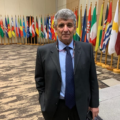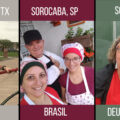
Workshop
Building roads to build community
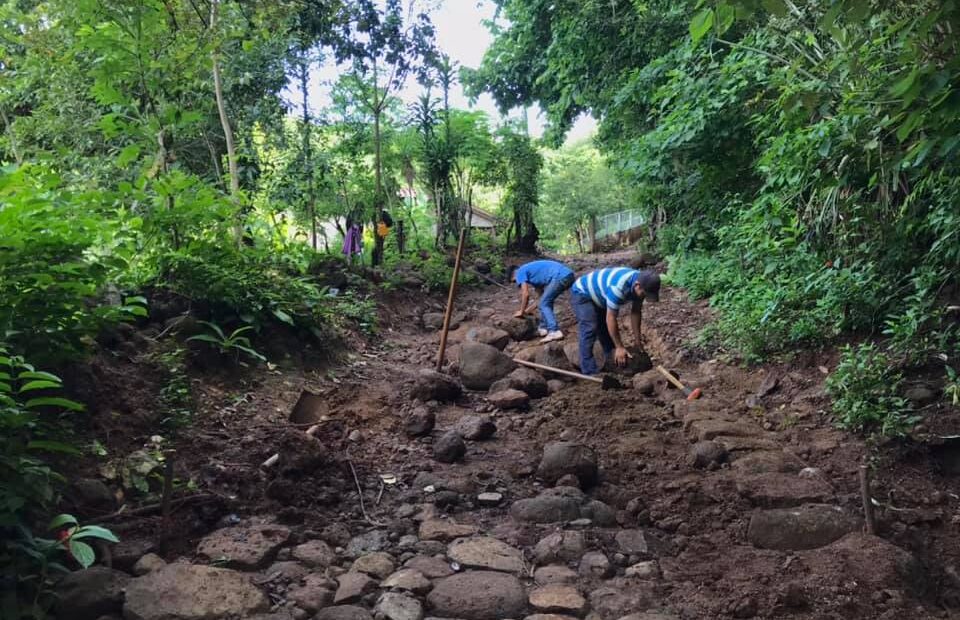
For this #DareToCare story we go to the Central American country of El Salvador, where huge socio-economic disparities are reflected in the abandonment of urban and rural villages. But even where everything seems to be disappearing, something is beginning to emerge: a sense of community and care for one another.
Pajigua is a city in the eastern part of El Salvador. Its roads have never been tarred, and walking along these dirt roads is part of the daily routine of Elizabeth Granados, aged 28.
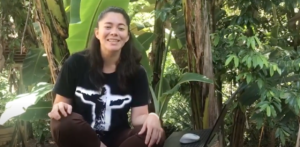
No bus has ever reached where she lives. For Elizabeth and all the residents of Pajigua, life is spent moving between the rural village and the city. She recalls how as a child she used to walk two and half hours to get to school.
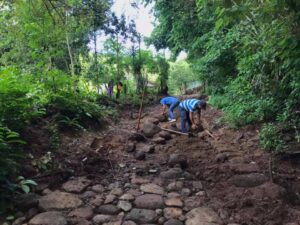
What can be so special in this city which often lacks even essential services? We turned to Elizabeth – known to all her friends as “Eli” – for some answers.
While I just had to pick up my phone, Eli walked for at least an hour to find a good enough internet signal. When she answered, her tone of voice conveyed happiness. You can tell immediately how vibrant she is!
Because it’s not only her voice which is energetic. Her life is full of dynamic action. When I ask her to tell us about it, she doesn’t know where to start! It’s clear she doesn’t like to take the credit for being a protagonist. So it’s best just to start at the beginning:
“Many years ago, as I was walking through my village, I dreamt of having a house where I could welcome many children. Those children would be happy, able to study, eat well and have lots of activities. That’s where it all started”.
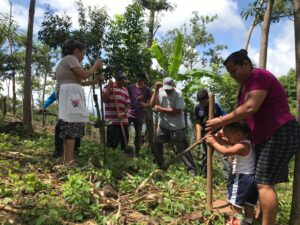
Even though education and food are fundamental human rights for every person, these can actually remain a privilege in many Latin American countries. According to United Nations data, in El Salvador only six out of every 10 children complete school, and one of every six suffer chronic malnutrition.
Faced with these conditions, many young people especially from rural areas opt to emigrate to the United States. “Children grow up here with the idea that when they reach adolescence the only opportunity they have is to leave their country”, says Eli. Currently 2.2 million Salvadorians live in the USA.
Her dream of happy children with better opportunities and more dignified living conditions inspired Eli to start a process beginning with small actions.
A few years ago, she launched the idea of meeting with a group of children and youth to read a phrase of the Gospel to live each month. Some of those participating are actually part of organized criminal gangs. But when they’re in the group, they’re different, they feel part of something, part of a family which welcomes them without judging them.
Eli has since been joined by others who, like her, dedicate themselves to the needs of the community, unafraid of “getting their hands dirty”. In this year when everyone has been told to close themselves inside their houses because of the pandemic, in Pajigua they’ve achieved the opposite. The doors of fraternity have opened wide!
In May, they began collecting food and essentials for the poorest members of their community, for the older people and the most vulnerable.
In June, Eli and her brother began to lay rocks along one of the dirt roads in their region. As they dragged stones out of the river to build the road, more and more members of the community caught their enthusiasm and joined in the work. “For us, it wasn’t only paving the roads, it was creating the idea the by working together we can improve our own community”, explains Eli.
And there seems to be no end to the initiatives. Every new week brings new challenges which are met with creative responses.
In July to commemorate International Earth Day, children and young people went round picking up discarded plastic waste in the area. As well as raising public opinion about caring for our Common Home, the action had the added benefit of selling the plastic for recycling!
In that same month, they heard a family in their community had been evicted from their home by the landlord. When they realised the family of four had become homeless, they shared their story in a video, asking for donations to build them a new home. Donations soon started coming in from Mexico, United States, Brazil, Italy as well as El Salvador. Through an internet platform, over 140 donors contributed. Many people are helping in the construction of the house, which is now 60% done.
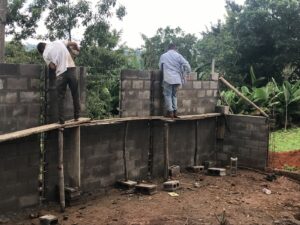
At the same time, there is action on other fronts. Another family was forced by poverty to live on the streets. When she saw this, Eli activated her network of collaboration and help. In just a few days she raised money to provide them all with mattresses.
In August, Eli met Josué, a young boy who dreamed of riding a bicycle. He had found a part of a broken bicycle in the trash and had used a tree branch to turn it into the form of a bicycle. When she saw this, Eli was moved, and decided to try to help him buy a real bicycle.
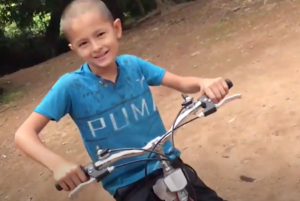
Eli acknowledges that most of the contributions she receives are from Pajigua citizens who emigrated to the United States and are now trying to help their communities by sending back money. So it wasn’t only Josué who received a new bicycle, but his sister Stefany too. And the money raised also helped to buy food, clothes and new shoes for them.
“The impulse to love one another makes you want to do more. You don’t always see the fruits straight away, but what remains is the hope that these generations will be more aware, will take better care of the planet, will study and take care of one another”.
The list of all the actions promoted by Eli does not end here. There are so many. And even if she does not consider herself the true protagonist, she recognizes that finding solutions to the many problems of her community is possible when care for others becomes part of us.

